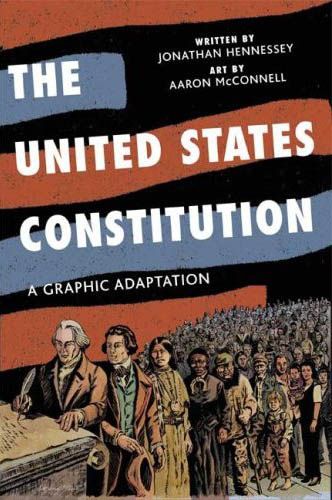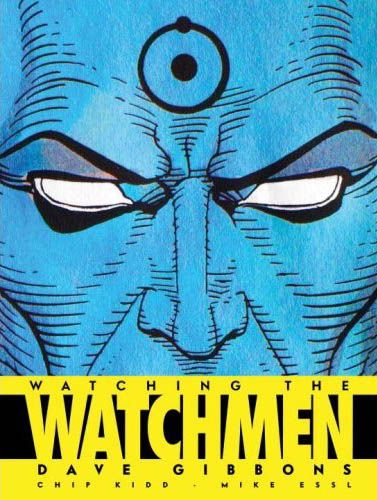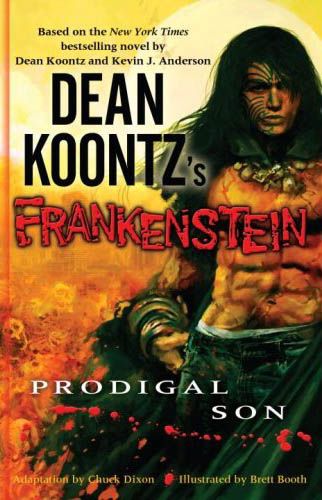The United States Constitution: A Graphic Adaptation
Written by Jonathan Hennessey. Art by Aaron McConnell
Hill and Wang, 160 pages, $35.
I honestly haven't cared much for most of the titles Hill and Wang have rolled out in their relatively new nonfiction line, but this beginner's guide to the United States' founding document is suprisingly well done. OK, its visual metaphors are a little strained at times, the pages can be so cramped that it's hard to move from panel to panel at times, and I wish McConnell hadn't covered his pages such a stultifying grey and brown wash tones.
All that being said, this is a rather smart and informative guide through the various articles and amendments that make up the Constitution, explaining their function and how interpretation has changed over the years. It's no book for scholars, most of whom will no doubt find the information presented too cursory, but for students and casual readers it's great.
by Inio Asano
Viz, 432 pages, $17.99.
Solanin is about the twentysomething realization that, while you may be talented, you're probably not as talented as you think, and you're probably not going to write that great novel, paint that masterpiece or compose that rock opera.
As ideas go, that's a pretty good one, though there's a good chance you'll fall victim to high melodrama and over-earnestness in your attempts to chronicle this realization. It's a trap that Asano fails to avoid, though that doesn't necessarily mean the book isn't devoid of merit. It just means that there are moments where the realism of the story is undercut by overwrought sincerity and sentimentality. A sudden, tragic accident that occurs midway through the tale felt more like plot manipulation than the type of shocking real-life experience it was obviously meant to evoke. Still, the concert scene at the end is killer. I'd buy the book just for that sequence alone.
by Dave Gibbons, Chip Kidd and Mike Essl
Titan Books, 256 pages, $39.95.
The bulk of this book is taken up with Gibbons' thumbnails for the seminal superhero mini-series cum graphic novel. Since these are very tight and nearly identical to the finished pages, there isn't an awful lot here for scholars and Watchmen groupies to contrast and compare with. No, "Ooo look, he originally had Rorschach coming in from the left instead of the right on panel 4 of page 13." Far more interesting for me, therefore, were Gibbons' reminiscences about how the comic came to be, and the early concept sketches and later promotional material. But material like that is rather skimpy in comparison. Overall, it's hard for me to recommend this book this book to anyone but serious Watchmen junkies. Still, there's enough of those around these days that I doubt Titan Books has serious cause for concern.
Dean Koontz's Frankenstein: Prodigal Son
Adaptation by Chuck Dixon. Illustrated by Brett Booth
Del Rey, 144 pages, $22.95.
Oh my but this is awful; an ill-conceived, overwrought genre work that fails to entertain on just about any level. I'd lay the blame entirely at the feet of Dixon and Booth, but I have a feeling the lion's share must rest with Koontz, since the entire concept is so fatally flawed to begin with.
To wit: A hunky, tattooed Frankenstein's monster, is out on the prowl after his creator, who is still alive and doing horrible things with dead bodies. There's a serial killer on the loose too. I suppose it's possible to wring some sort of interesting tale out of this material, but Dixon and Koontz's prose is so florid and purple it's hard to see how.
This is the sort of comic where all the women are busty and wearing midriffs, regardless of their job or social status; where all the men have sallowed cheeks, vacant eyes and rippled abs; where each declaration leaves you scratching your head wondering "What does that mean exactly?"; and where cool poses and Photoshop effects matter more than telling a story in a coherent fashion.





